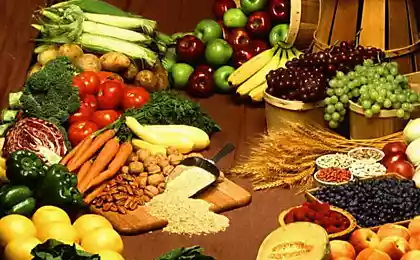183
Features of nutrition in winter
From December to March, the sun is rarely and briefly exposed due to clouds, darkens early, and sunlight is so low that it begins to negatively affect our health. How do you make up for the lack of sun?

DepositPhotos
More than 70% of the vitamin D necessary for our body is synthesized when direct sunlight (ultraviolet) hits the skin. Lack of this important vitamin can have serious health consequences.

DepositPhotos
Frequent infections, constant fatigue, deterioration of teeth, hair and nails are not all signs of vitamin D deficiency. "Sunny" vitamin promotes the absorption of calcium in the intestine, and vitamin D deficiency leads to depletion of calcium stores in the bones and osteoporosis.
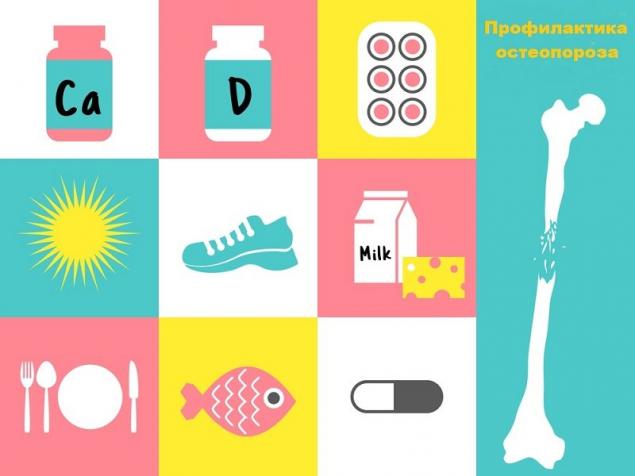
DepositPhotos
Sunlight also affects the body’s production of serotonin (the mood hormone) and melatonin (the sleep hormone). This strengthens immunity and our natural resistance to viruses and bacteria.

DepositPhotos
"Site" will tell about food products that on cloudy winter days make up for the lack of hormones and vitamins, protect against diseases and help smooth out the body’s longing for sunlight.
The dose of vitamin D is calculated in international units - IU. According to the recommendations of nutritionists, an adult needs 600 ME per day.
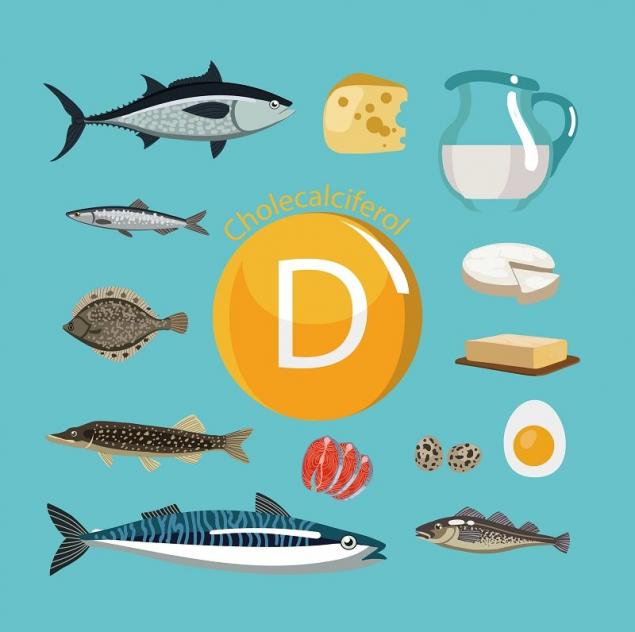
DepositPhotos
This amount of vitamin D can be obtained from food or sun exposure for 15-20 minutes. But most of us work indoors, and sunny days in winter are so few.
Fortunately, food sources of the sunshine vitamin are readily available year-round. The highest amount of vitamin D (per 100 g) contains the following foods.
Sunlight helps the body produce the hormone serotonin, which is often called the “good mood hormone” and “happiness hormone.”

The food source for the synthesis of serotonin is the amino acid tryptophan, and contribute to this process vitamins B, vitamin D, magnesium, iron and other trace elements that we can get from the following products.
Healthy sleep is produced from serotonin hormoneIt protects us from stress, obesity and aging. In winter, serotonin and therefore melatonin is less, so we need more time to sleep.

DepositPhotos
Melatonin has not only sedative (sedative), but also antioxidant, rejuvenating properties, and in addition, strengthens the immune system and even fights cancer cells!
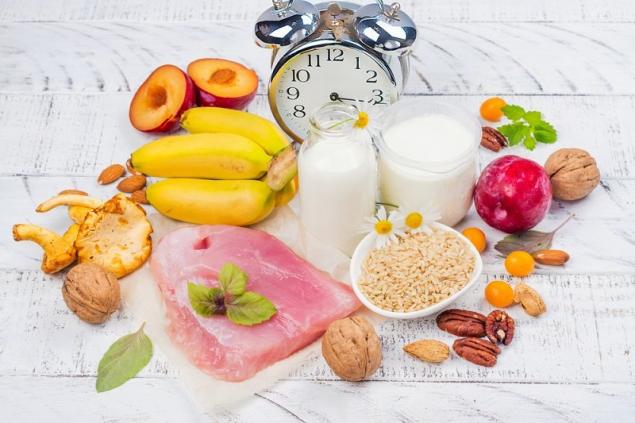
DepositPhotos
The melatonin content in our body can be increased with the help of certain foods that contain it. The concentration of melatonin is indicated in nanograms (ng) per 100 g of product.
Melatonin synthesis is impaired in a diet based on large amounts of animal fats and starches. Also block the production of the hormone: coffee, black tea, strong green tea, energy, alcoholic beverages.
Protection against disease
DepositPhotos
Sunlight also strengthens immunity and our natural resistance to viruses and bacteria. The following foods can compensate for its deficiency.
Vitamin D deficiency is a serious problem because long-term deficiency increases the risk of cardiovascular disease and cancer. Today's edition. "Site" Learn how to recognize vitamin D deficiency and what to do about it.
In the cold season especially want warmth, care and something tasty. The best way to get everything right away is to make soup. Light homemade soup is ideal when you need to give your stomach a few days of rest and cope with the consequences of overeating.
We offer you 3 recipes of homemade instant soups, which are simply a sin not to cook in the winter.

DepositPhotos
More than 70% of the vitamin D necessary for our body is synthesized when direct sunlight (ultraviolet) hits the skin. Lack of this important vitamin can have serious health consequences.

DepositPhotos
Frequent infections, constant fatigue, deterioration of teeth, hair and nails are not all signs of vitamin D deficiency. "Sunny" vitamin promotes the absorption of calcium in the intestine, and vitamin D deficiency leads to depletion of calcium stores in the bones and osteoporosis.

DepositPhotos
Sunlight also affects the body’s production of serotonin (the mood hormone) and melatonin (the sleep hormone). This strengthens immunity and our natural resistance to viruses and bacteria.

DepositPhotos
"Site" will tell about food products that on cloudy winter days make up for the lack of hormones and vitamins, protect against diseases and help smooth out the body’s longing for sunlight.
The dose of vitamin D is calculated in international units - IU. According to the recommendations of nutritionists, an adult needs 600 ME per day.

DepositPhotos
This amount of vitamin D can be obtained from food or sun exposure for 15-20 minutes. But most of us work indoors, and sunny days in winter are so few.
Fortunately, food sources of the sunshine vitamin are readily available year-round. The highest amount of vitamin D (per 100 g) contains the following foods.
- Herring. - up to 1,200 IU.
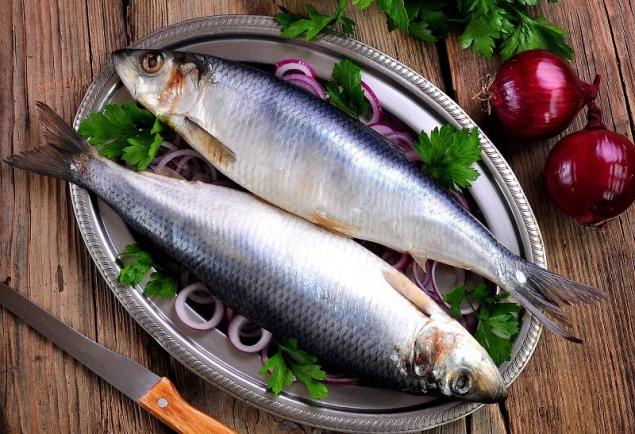
DepositPhotos - Salmon - up to 800 IU.
- mackerel - up to 405 IU.
- Liver - up to 50 IU.
- smetana - 50 IU.
- Butter - up to 35 IU.
- egg yolk - 25 IU.
- Meat. - 13 IU.
- Corn oil - 9 IU.
Sunlight helps the body produce the hormone serotonin, which is often called the “good mood hormone” and “happiness hormone.”

The food source for the synthesis of serotonin is the amino acid tryptophan, and contribute to this process vitamins B, vitamin D, magnesium, iron and other trace elements that we can get from the following products.
- Cheese Tryptophan, fatty acids and vitamins A and E.
- Seafood and fish - Tryptophan and B6.
- Eggs. Tryptophan, fatty acids, vitamins A, E, D and group B.
- broccoli - vitamins A, C, E, B1, B2, B9, PP, potassium, calcium, iron, sodium, phosphorus, magnesium, copper, manganese, iodine, chromium, boron.
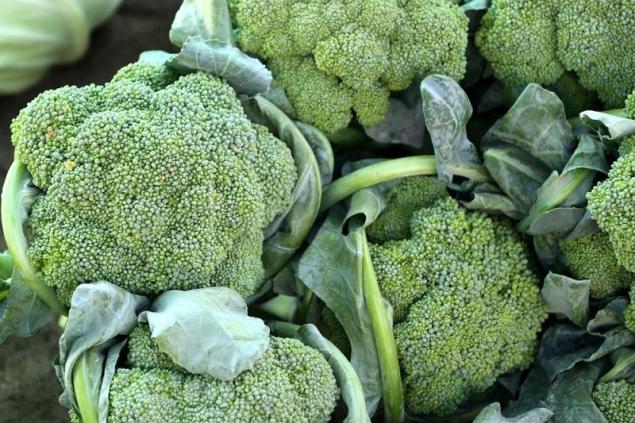
DepositPhotos - Plums - lots of magnesium and potassium.
- Legume Magnesium, responsible for relaxation and calming.
Healthy sleep is produced from serotonin hormoneIt protects us from stress, obesity and aging. In winter, serotonin and therefore melatonin is less, so we need more time to sleep.

DepositPhotos
Melatonin has not only sedative (sedative), but also antioxidant, rejuvenating properties, and in addition, strengthens the immune system and even fights cancer cells!

DepositPhotos
The melatonin content in our body can be increased with the help of certain foods that contain it. The concentration of melatonin is indicated in nanograms (ng) per 100 g of product.
- Cherries and cherries - up to 1350 ng.

DepositPhotos - Walnuts. - 270 ng.
- corn - 188 ng.
- Rhys - 150 ng.
- ginger root - 142 ng.
- peanuts - 117 ng.
- Bananas - 31 ng.
Melatonin synthesis is impaired in a diet based on large amounts of animal fats and starches. Also block the production of the hormone: coffee, black tea, strong green tea, energy, alcoholic beverages.
Protection against disease

DepositPhotos
Sunlight also strengthens immunity and our natural resistance to viruses and bacteria. The following foods can compensate for its deficiency.
- Ginger
- Garlic
- Citrus
- Marine fish and seafood
- Apples
- Lemons
- Rosehip
- Red forest berries - cranberries, raspberries, lingonberries
Vitamin D deficiency is a serious problem because long-term deficiency increases the risk of cardiovascular disease and cancer. Today's edition. "Site" Learn how to recognize vitamin D deficiency and what to do about it.
In the cold season especially want warmth, care and something tasty. The best way to get everything right away is to make soup. Light homemade soup is ideal when you need to give your stomach a few days of rest and cope with the consequences of overeating.
We offer you 3 recipes of homemade instant soups, which are simply a sin not to cook in the winter.




















